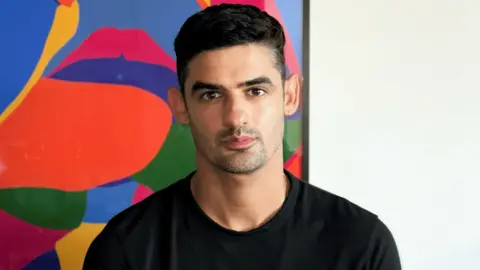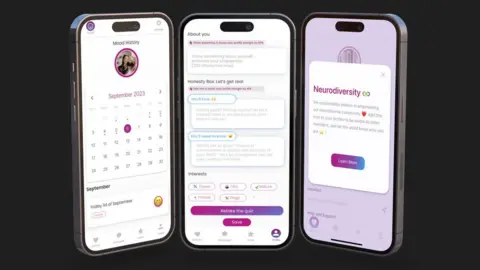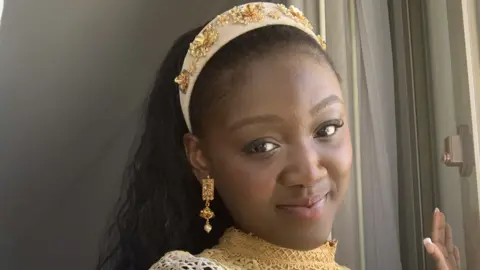Neurodiverse dating app founder was date 'addict'
 Mattr
MattrThe founder of a dating app designed for people with ADHD and autism says he launched it after feeling like he had become "addicted" to dating.
Jamie Johnston, 34, founded Mattr, which is currently only a service for Londoners, after he was diagnosed with ADHD at the start of 2021.
He said he felt addicted to the "stimuli and dopamine" from dating.
His app launched one year ago and has 1,200 active users, mostly in east London.
Jamie said he viewed traditional dating apps as "games" where profiles "would get "scored" by other users.
"That really had a toll on my mental health. After a while, that lifestyle starts to grate on you," he said.
'Exhausting'
"I was addicted to the dopamine of it rather than actually trying to find a partner.
"It was exhausting and I knew something had to change. I wanted to create a space where everyone feels comfortable being themselves, without fear of judgement from others or the app itself.
"People with autism and ADHD are most likely to ghost people, delete apps, ignore messages, avoid small talk and get to the point or be abrupt - it's no wonder that dating apps are causing users to feel overwhelmed."
The app has a range of features designed with neurodiversity in mind, Jamie said. These are:
- Option to share neurodiversity details
- Daily mental health check-in
- Option to take a break - and let your matches know
- Limit of up to four matches a day
- Personality algorithm based on interests, not other user behaviours
- Prompts to get a conversation started
- Option to reply via video for those who struggle with typing
- Verified profiles
Jamie added that in a survey of autistic app users, four out of five people did not think other dating apps represented them.
The survey also found that 94% of neurodivergent respondents felt misunderstood by digital matchmaking services.
 Mattr
MattrHe said the app has a section titled "You'll need to know", which people often use to share personal details about neurodiversity, as well as an option to tick a box to say they are neurodivergent.
"The vast majority of people use it," he said.
"It's about creating an environment and space where people feel free and open to articulate it."
Mo, from Brent, said he used the app when he was living in Hackney, where he met his current partner.
Both of them are neurodivergent.
"It's always easier to build a relationship when you have something in common," the 24-year-old said.
Mo added that he tried other dating apps on and off for six or seven years, but found that he had less in common with the people he was matching with.
"In general, I gravitate towards authenticity," he said. "[On other apps], people try to put forward their best selves rather than their actual selves. It's a bit trickier to bond with people in that way.
"Because of the nature of [Mattr], authenticity was almost a given."
 Daniella Opoku
Daniella OpokuDaniella Opoku, from Waltham Forest in north-east London, said she signed up to the app to meet more neurodiverse people, although she is yet to go on any dates.
The 24-year-old, who received an autism diagnosis a few years ago, said: "I feel it's a rite of passage for my generation at this point to use dating apps.
"We all want a sense of community, and balancing a social life with the pressures of working can be so difficult without online support.
"I find that I usually get along with and gravitate toward other neurodivergent people, particularly people with ADHD and autism, as they can relate to many of my social experiences."
Daniella said it could be "anxiety-inducing" deciding when to tell people about her neurodivergence, and found using the app eased her nerves.
This was all considered as part of the design, Jamie says, adding that the app matches people with others based on their personalities, and what each person says they're looking for in a partner.
"We tell you why you're matched with them," he said. "And you can't just like their profile, you have to message them. And to message you have to open their profile."
Mr Johnston said that he is engaged now, after meeting his partner - on a another dating app.
"About 50% of the weddings I'm invited to now have come from a dating app match. I just hope to make the experience much more manageable for people."

Listen to the best of BBC Radio London on Sounds and follow BBC London on Facebook, X and Instagram. Send your story ideas to [email protected]
